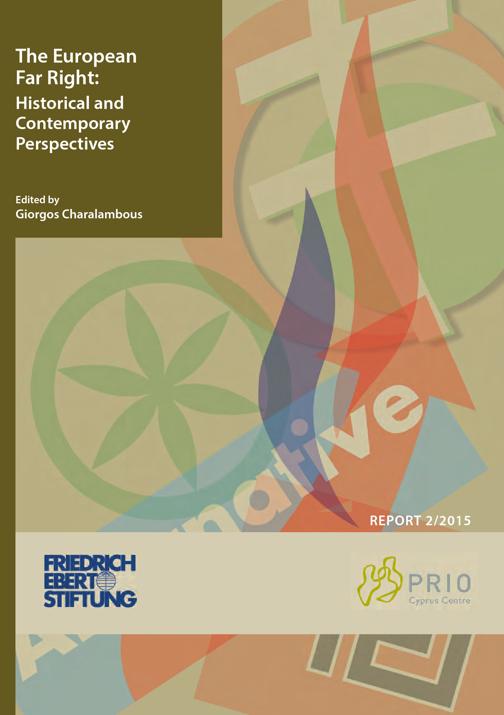Publikationen der StiftungThe European far right Titel
Titelaufnahme
- TitelThe European far right : historical and contemporary perspectives : a joint publication by: PRIO Cyprus Centre, Friedrich-Ebert-Stiftung
- Herausgeber
- Körperschaft
- Erschienen
- Umfang1 Online-Ressource (VI, 57 Seiten)
- SpracheEnglisch
- SerieReport ; 2/2015
- DokumenttypDruckschrift
- Schlagwörter
- Geografika
- ISBN978-82-7288-661-4
- URN
- Das Dokument ist frei verfügbar
- Nachweis
- Archiv
This report is a compilation of essays discussing the far right in Europe, introduced first by a crucial reminder that the far right is not unknown in Europe�s history. Rather, it is the outgrowth and historical (re-) culmination of deep traditions that pervaded earlier periods of the twentieth century, and which were enmeshed with conservatism. These are, in part, even reflected in the dominant ethno-centric, populist and opportunistic mentality of Europe�s leading elites and member-state governments, making the so-called mainstream consensus unable to transcend the core and inner elements of far right discourse and ideology. The electoral growth of far right parties in European countries between the early 1980s and today has been gradual, increasing consistently, at times steeply. From representing barely 1 per cent of the vote, the average has shot up to approximately 7 per cent, with the post- 2000 period witnessing a particularly rapid growth. This is, of course, the average; some countries, as well as specific areas, are much more significant than others, while some parties more extremist than others. These trends also only reflect parliamentary results. The number of far right MEPs (Members of the European Parliament) has increased from 37 in 2009 to 52 in 2014 and a far right group in the European Parliament called �Europe of Nations and Freedom�, led by France�s Front National, was formed in 2015. Yet, as frightening and notable as the recent electoral trajectories of far right organizations in Europe may be, our focus on the far right does not exclusively derive from electoral (or even strictly political) criteria. After all, some of the raw data point in another direction.
